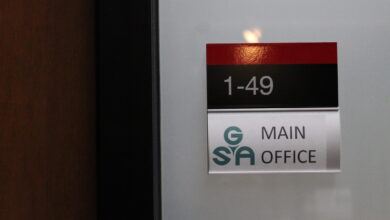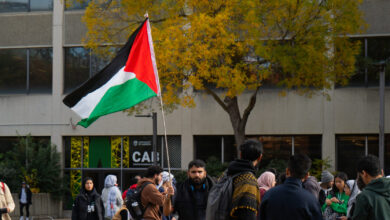How to be a Better Ally
Ever since pre-school, we’ve learned to walk a mile in our neighbours’ shoes. But how can we effectively support someone’s situation that we’ve never experienced ourselves?
An ally is a person who wants to fight for the rights of a marginalized group that they’re not a member of.
But being an ally isn’t as simple as updating your Twitter bio — it’s an ongoing process of self-education and hard work. Here are some handy tips on how to be an active supporter of a community.
CHECK YOUR PRIVILEGE.
No, seriously. Having privilege means that there are some things that you’ll never have to experience in life simply because of who you are. Your gender identity, your social class or the colour of your skin, for example, may afford you easiness in some situations, while those characteristics may detriment others.
And just because parts of your identity are privileged doesn’t mean that you don’t face hardships in other parts of your life.
It’s natural to feel defensive once you confront your privilege. Remember, though, that privilege is not inherently bad, but how you act on it can be. You can use your place in society to support those in a different situation.
COMMUNITY COMES FIRST.
Melissa Fabrizio, Communications & Events Coordinator of the U of A’s Institute for Sexual Minority Studies and Services, says that while there’s many personal reasons to becoming an ally, the community’s needs should come before your own: “It’s not about you. It’s about the community.”
STRIVE FOR SELF-BETTERMENT.
Acknowledge that being an ally is a constant process — declaring that you’re an ally isn’t enough. There’s always room for growth!
According to Vernon Wall, in Beyond Tolerance, allies go through a process of “coming out,” similar to the process that those who identify as LGBTQ may go through. The Riddle Homophobia Scale categorizes this transition into eight broad stages: repulsion, pity, tolerance, acceptance, support, admiration, appreciation
and nurturance.
This process may begin with the “repulsion” phase, where the individual sees the group in question as a “crime against nature.” This process eventually resolves in the “nurturance” phase, where the
individual assumes the group in question is an “indispensable” part of society.
INTERRUPTING OPPRESSIVE BEHAVIOUR.
Actively joining in on, or having no response to an oppressive behaviour — like a joke made at a marginalized group’s expense — only works against inclusion.
Mary McClintock, in “How to Interrupt Oppressive Behavior,” suggests voicing your disapproval along with educating people, like saying “That’s not really funny because it’s like saying LGBTQ people aren’t worthy of real respect.” Further, McClintock suggests initiating your own, or supporting others’ proactive responses to reducing oppression. This could mean anything from directing offensive joketellers to a helpful website, or planning a relevant workshop for your student group.
RECOGNIZE WHEN YOU’VE MADE A MISTAKE…
…and acknowledge that making mistakes is okay — just make a commitment to be better in the future.
YouTube blogger Chescaleigh stresses the importance of impact over intent in her video “Getting Called Out: How to Apologize”: “It doesn’t matter what you meant. What matters is the outcome of what you said or what you did.”
Chescaleigh offers some solid advice on how to apologize, too:
Bad apologies: Avoid saying things along the line of “Sorry that you were offended” because you’re placing the blame on the person who was offended.
Good apologies: Take responsibility for what you’ve done, and make a commitment to change that behaviour. If you want, throw in a “thank you.” It can be scary to call someone out.
EDUCATE YOURSELF.
It isn’t the responsibility of the community you’re allying to educate you.
Take initiative to constantly deepen your knowledge to educate yourself and others. Stay up-to-date on the news affecting the community and get your news from a variety of sources — and even better, read material written by members of the community itself. Knowledge is power!
RESOURCES FOR ALLIES:
Shrub Blog Resources on Privilege
Institute for Sexual Minority Studies
Chescaleigh YouTube channel
The Anti-Oppression Network
QUICK TIPS:
- Don’t assume everyone you meet is heterosexual, able-bodied or of a certain ethnic or socioeconomic background based on their appearance. Likewise, don’t be surprised if someone “comes out” to you.
- Avoid phrases like “this is my gay best friend” — humans aren’t accessories.
- Treat everyone as a unique individual. Although people may be a part of the same marginalized group, all individuals come from diverse backgrounds and all experience their privileges and oppressions differently.




